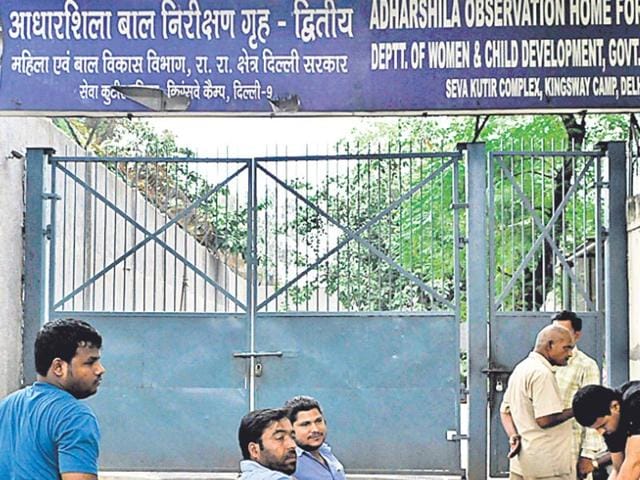Amendments in Juvenile Justice Act prevents children's reform
The proposed changes in the Juvenile Justice Act snatch from vulnerable people below 18 a chance to reform themselves
Adult India is suddenly afraid of its children. This fear has resulted in wide support within the Parliament and outside for amendments to the law to treat children between 16 and 18 years like adult criminals when charged with grave crimes. Under these amendments, if a juvenile board concludes that a child is able to understand the consequences of his crime, it will transfer the case to a children’s court, which in turn could sentence the child from seven to 20 years in custody. Till he turns 21, he will be kept in a ‘place of safety’, after which the court will again evaluate if he has reformed. If not, he will be dispatched to an adult prison for the rest of his sentence.

It has been a long civilisational journey through which we as a people moved gradually from condemning teenage crime to a humane approach of offering the child the opportunity to reform, in the way we would to our own children who lose their way. I have seen many children and teenagers who were inducted into serious crime respond remarkably to love, protection, education, and faith that they matter, that they can indeed rebuild their lives. It is this chance to reform which these new amendments snatch from vulnerable children, condemning them instead to adult criminal standards of evaluation and consequences for childhood offences, stigmatising them for life.
Before these amendments have come into force, large numbers of under-age boys are detained in jails by the police, who have falsely recorded their age as above 18 years. Minna Kabir reports that in Delhi, the high court direction authorised lawyers and social workers to prepare applications for inmates who claimed to be under 18; in Tihar alone out of 330 young applicants, 180 were found to be children. Juvenile homes are themselves typically brutal and loveless, but adult prisons are far more so.
The law evolved over 150 years to make housing young offenders with adult criminals unlawful, recognising that adult prisons are sites in which a teenager is far more likely to be both brutalised and initiated into a life of adult crime, rather than deterred from further crime and receiving steady compassionate guidance to reform. America went down the path proposed by India’s new amendments, of transferring child offenders to adult courts, 25 years ago. But as Ved Kumari points out, most current research in the US confirms that children sent to adult criminal courts commit more violent offences in their life later compared to the children who were dealt with under the juvenile justice system.
These amendments arise from the popular belief that India has seen a spurt in juvenile rape and murder, and that because these teenagers are protected from adult punishment, nothing deters their vicious transgressions. These widely held perceptions were fuelled by public anger after one of the accused in the December 16 rape case escaped adult punishment.
Children comprise 42% of India’s population but 1.2% of the crimes recorded in India are committed by them. Child-rights lawyer Maharukh Adenwalla calculates that only 7% of these crimes are murder and rape. The law separately raised the legal age of sexual consent from 16 to 18 years, which criminalises consensual sex between children. The Hindu reported that of all rape cases against under-age boys in Delhi, 40% were of consensual ‘love affairs’ between boys and girls.
In 2013, crime data showed that among children charged with offences, 78% came from families with an annual income of less than Rs 50,000; 87% had not completed high school. There is a clear profiling of impoverished, street and slum-living teenagers in the working of the juvenile system. It is they who these amendments will now criminalise for life. The amended law overturns the earlier protection that every child’s criminal record would be destroyed to enable the child to start life afresh. Now these records would be retained, entailing all disqualifications and stigma.
Teenage is a life-phase of surging hormones, evolving brain changes and immature emotional control, of risk-taking, impetuousness, sensation-seeking and peer pressure. Teenagers are less able to control both anger and sexual longing because their frontal cortex — which allows adults to control their impulses — is not fully developed. If teenagers come from damaged families, or have none, and have no reliable adults to guide or steady them in these tumultuous bewildering years, they may act unwisely and destructive of themselves and others. The question is whether for such acts they should be condemned, or helped.
The decision we take about how we treat our children and young people when we believe they cause us grave harm defines the quality of our public compassion. Will we condemn them to adult punishment and stigma, and a probable life of adult crime? Or will we recognise that these children are often damaged and unsupported, unable to control their emotions? Will we believe it is possible for them to grow into caring and responsible young adults? Will we allow them a chance?
Harsh Mander is convenor, Aman Biradari
The views expressed are personal




